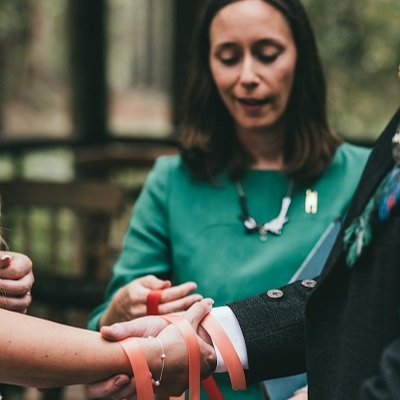Here is a selection of Q&As from Your Yorkshire Wedding magazine whether it be about flowers, hair and makeup, fashion, wedding themes, health & beauty, cakes, stationery, legal advice. If you would like your question answered by our experts, please email it to editor@youryorkshire.wedding
To view more expert advice on a different topic, please select one from the list below.

What Matters Most
| Q | What is your advice on planning a sustainable wedding? |
| A | Celebrant Rachael Bowers says: Less stuff, more meaning! I'd encourage you to think about what what truly makes you and your guests happy. For the couples I work with, who want a truly intentional wedding that reflects their green values, this means choosing things that matter and ditching those that don't. Wedding favours, single-use items personalised with dates or Team Bride, disposable flip flops... no one will miss these things! How people feel at your wedding is what makes the biggest impression. Instead of wasting money on manufactured gifts that end up in the bin, make your wedding day memorable through an impactful ceremony, incredible music, or entertainment. Spending a little bit more on your wedding ceremony for example, with a celebrant or live musicians results in a much more personal and emotional event that sets the tone for the rest of your big day. Whether you want it to be fun, sentimental or serious, a ceremony written about you with music, stories and singing will be memorable for the right reasons, without harming the planet. As a humanist celebrant, I work with many couples who want to have a more sustainable wedding. During the ceremony, I talk about their values as a couple, and this often includes caring for the planet and living sustainably. |
Celebrant Rachael Bowers, Ceremonies with Rachael